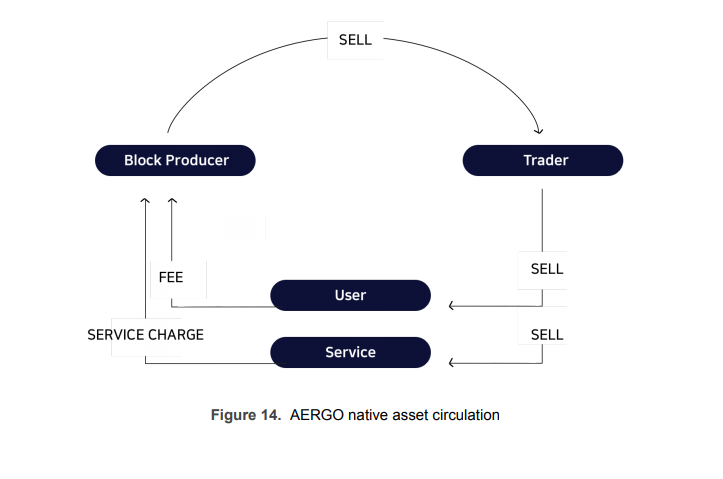On the Bitcoin blockchain, only a user’s public key appears next to a transaction, making transactions confidential, but not anonymous. If you’re looking to buy Bitcoin, pay particular attention to the fees that you’re paying. Here are other key things to watch out for as you’re buying Bitcoin. Volatility is a game for high-powered Wall Street traders, each of whom is trying to outgun other deep-pocketed investors.
The prices of cryptocurrencies are about as volatile as an asset can get. They could drop quickly in seconds on nothing more than a rumor that ends up proving baseless. That can be great for sophisticated investors who can execute trades rapidly or who have a solid grasp on the market’s fundamentals, how the market is trending and where it could go.
Things to Know Before Investing in Bitcoin
Bitcoin is a form of digital currency that aims to eliminate the need for central authorities such as banks or governments. Instead, Bitcoin uses blockchain technology to support peer-to-peer transactions between users on a decentralized network. The investing information provided on this page is for educational purposes only. NerdWallet, Inc. does not offer advisory or brokerage services, nor does it recommend or advise investors to buy or sell particular stocks, securities or other investments.
The major exchanges have beefed up security and purchased private insurance, but many experienced traders still aren’t convinced. Bitcoin transactions are more traceable than cash because they are available for public view and it is very difficult to trace the transacting parties on the cryptocurrency’s blockchain. However, researchers and the FBI have claimed that they can track transactions made on the Bitcoin blockchain to users’ other online accounts, including their digital wallets. One of the most popular strategies for investing in Bitcoin relies on the asset’s volatility. If for nothing else, Bitcoin has become synonymous with violent swings in valuation.
You can also invest in the technology behind Bitcoin, also known as “blockchain.” Bitcoin was never intended to be an investment. Here are a few things to keep in mind while considering a bitcoin investment. I’ll answer these questions and more as we discuss how to invest in bitcoin. Before buying bitcoin, be sure to check out the legal, regulatory, and tax status of purchasing it where you live.
These investors are convinced Bitcoin will increase in value, perhaps as serving as a new store of value (like gold), but aren’t against selling for a profit when the time is right. The predatory investors are smart, and they sell all of their holdings before the buying surge ends, making a huge profit. But when investors stop buying, the value of the coins falls to extremely low prices.
Every cryptocurrency is different, so the best option depends on your individual circumstances. That said, beginning investors may wish to explore more established currencies, as there is plenty of information about how they work and their performance over time. Cryptocurrency is a risky investment, so approach it with your eyes open to potential pitfalls. Digital currency is volatile, it’s largely unregulated, and there are many unknowns about how this new form of currency will develop in the future. Your final step to becoming a bona fide bitcoin trader is to know when to buy, sell or hold — or as crypto stans say, HODL (see below). Not necessarily — just a volatile one that belongs only in the riskiest corners of your portfolio.
These exchanges include Coinbase, Kraken, Gemini, and Binance; they offer bitcoin and a growing number of altcoins. When an investor creates an account on Coinbase, they must provide their identification. If they send it to another wallet, it can still be traced back to the Coinbase purchase connected to the account holder’s identity. Whether it’s a down payment for a house or an important upcoming purchase, money that you need in the next few years should be kept in safe accounts so that it’s there when you need it. And if you’re looking for an absolutely sure return, your best option is to pay off debt.
Should You Use a Hot Wallet or a Cold Wallet?
Cryptocurrency investors need to understand the tax consequences of using crypto, especially if they purchase something or sell their crypto investments. Many investors are nonetheless attracted to the potential upside of investing in crypto. If you decide to invest, it’s important to carefully research any digital coin before buying it. Pay attention to transaction fees when making crypto purchases because these fees can vary widely among currencies. Some P2P exchange services provide a more direct connection between users.
At Bankrate we strive to help you make smarter financial decisions. While we adhere to strict
editorial integrity,
this post may contain references to products from our partners. The offers that appear on this site are from companies that compensate us. But this compensation does not influence the information we publish, or the reviews that you see on this site. We do not include the universe of companies or financial offers that may be available to you. Transactions are authenticated through Bitcoin’s proof-of-work consensus mechanism, which rewards cryptocurrency miners for validating transactions.
Cryptocurrency taxes: A guide to tax rules for Bitcoin, Ethereum and more
Our editorial team receives no direct compensation from advertisers, and our content is thoroughly fact-checked to ensure accuracy. So, whether you’re reading an article or a review, you can trust that you’re getting credible and dependable information. Our mission is to provide readers with accurate and unbiased information, and we have editorial standards in place to ensure that happens.
That means that Bitcoin values may rise or fall dramatically in value over a very short period—even as quickly as a few hours or days. First, it was designed to prevent crypto coins from being fraudulently duplicated. Think about how easy it is to make copies of your computer’s data—documents, photos, files, etc. Cryptocurrency wouldn’t be possible if anybody could duplicate a coin and create an unlimited amount of currency for oneself. Likewise, there’s a need to prevent people from reproducing crypto coins.
New Bitcoins are created as part of the Bitcoin mining process, in which they are offered as a lucrative reward to people who operate computer systems that help to validate transactions. Crypto is the new frontier for investors, a place where digital assets meet a chance to generate substantial wealth. But the space also crawls with risks, from security concerns to enormous volatility.
What is bitcoin?
More specifically, however, BLOK is an actively managed ETF that specializes in blockchain technology. That means fund managers constantly seek out businesses that focus on blockchain technology and investing in them. Therefore, anyone investing in BLOK is invested in a basket of blockchain technology companies.
- Although you can use a credit card to purchase cryptocurrency, cryptocurrency price volatility could inflate the overall cost of purchasing a token when combined with a credit card’s interest charges.
- Plus, investing in multiple cryptos lends a little diversity to your high-risk crypto portfolio.
- And while it may not have all of the features and altcoins (non-bitcoin cryptos) of its international parent, it’s a compelling rival to Coinbase in its own right.
- Investors may purchase shares of BLOK on the secondary market and increase their exposure to Bitcoin.
- Still, the coin continues to command an impressive user base – and the interest of beginning and veteran investors alike.
- If there’s a discrepancy, the networked computers have to resolve it.
Ultimately, your path should depend on your long-term strategy and financial goals. Weighing the diversification benefits that bitcoin brings to your broader portfolio is also important. If you’re interested in investing in bitcoin for beginners, here’s where to start.
In fact, many so-called “free” brokers embed fees – called spread mark-ups – in the price you pay for your cryptocurrency. Most crypto exchanges, for example, have a minimum trade that might be $5 or $10. Once you’ve weighed the risks, it’s time to find a platform that offers crypto trading. Cryptocurrency exchanges like Coinbase or Crypto.com, traditional stockbrokers and robo-advisors may all provide crypto access. As its name suggests, the Amplify Transformational Data Sharing ETF is an exchange-traded fund traded on the stock market. Investors may purchase shares of BLOK on the secondary market and increase their exposure to Bitcoin.
You can find several exchange-traded funds (ETFs) that include shares from various blockchain-related companies, like the Amplify Transformational Data Sharing ETF (BLOK). You’re not directly investing in cryptocurrency but in corporate stocks of companies that utilize Bitcoin. Your success may depend on properly “timing the market.” In other words, you’ll buy coins when they’re at a low price and sell them when they’re at the highest possible price. High-risk investors who pay close attention to the market may be able to generate massive returns when employing that strategy. They might even generate returns that are highly improbable in the world of corporate stocks or government bonds.
So, what exactly is Bitcoin, and how can you determine whether it’s the right investment for you? Like USD, bitcoin is the same no matter where you “withdraw” it from. Therefore, your primary considerations will be safety, convenience and fees.
Money only leaves your bank account when you purchase the coin itself—not when you make purchases with a coin. The 2021 Infrastructure Bill cracked down on crypto tax reporting even further. As a result of the bill’s passing, all cryptocurrency exchanges will soon be required to file Form 1099-Bs on their users. This mandatory annual tax reporting for crypto brokers starts in 2023.
This decentralization is a key component of the blockchain, providing digital assets with their notable speed, transparency and security. Unlike traditional currencies, cryptos aren’t issued or regulated by a central bank or government. Instead, these assets operate on internet protocols called blockchains, which encode rules regarding mining, verification and spending into their digital DNA. Investing in crypto diversifies your portfolio with nontraditional assets that may not correlate to widespread market movements. They also open the gateway to emerging blockchain technologies, including NFTs and the metaverse. Cryptocurrencies like bitcoin have taken the world by storm, both as a digital currency and a unique investment opportunity.















